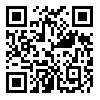Received: 2008/10/12 | Accepted: 2011/06/27 | Published: 2014/09/16
Rights and permissions
Health related quality of life would be one of the most effective criteria to assess current situation of a population and also is absolutely useful for health service evaluation. War has a huge effect on health and decreases quality of life in according to many physical and mental disabilities and limitations that are occurred by war. One of the most important war injuries followed by visual impairments is ocular trauma which can deeply affect quality of life. Considering searches done before the study, no document and evidence of quality of life assessment in this group of war injured was found so that we had no base line score. First of all, achieving a base line score for QOL then planning some interventions to progress QOL of blind war survivors, we designed and did this study. This study was a cross sectional and used SF 36 as an instrument for assessing QOL of the population and also their spouse in a 14-days campus in 2007. Some demographic data gathered by asking questions and the questionnaire filled in by some trained inquiries. Participants at a mean age of 43.20±8.34 were 96.5% male and 3.5% female with mean QOL score of 59.20±22.80. High educated participants had a better QOL. The relation was significant (p=0.006). Ignoring blindness, QOL has a significant relation to number of injuries (p=0.000). Ageing would be great set of burdens in the future of blind war survivors’ life even they had better QOL than Lower Limb Amputees in physical component scale. Changing and improving QOL of their spouses could make a harbor effect on their QOL. Using assistive devices and education about how to use them can help to improve their abilities and progress QOL.





